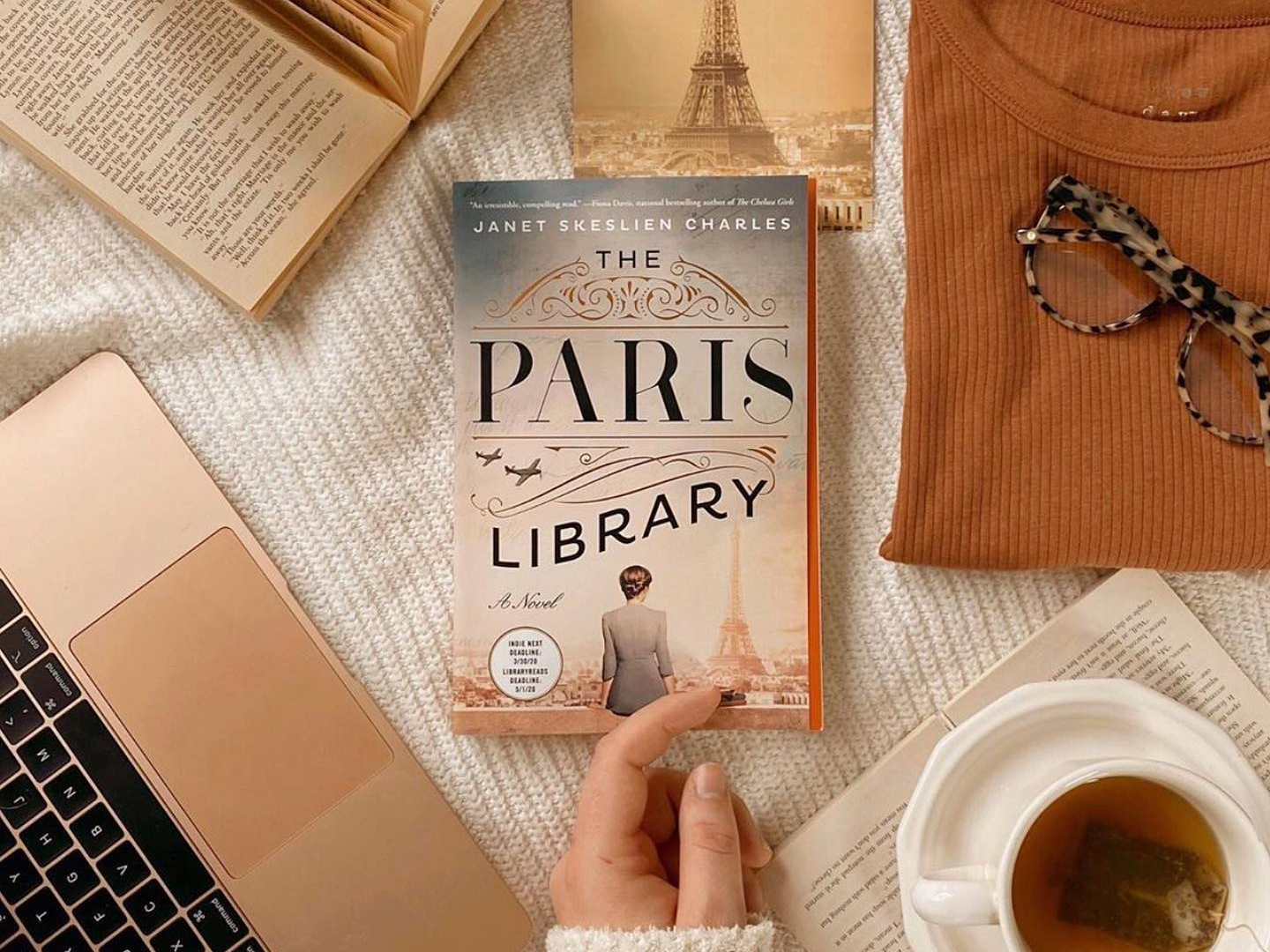
Books connect a middle-aged ex-librarian and a schoolgirl, both of whom long for similar things (Photo: Atria Books)
There is an element of predictability in Janet Skeslien Charles’ The Paris Library from the get-go — it doesn’t take Sherlock Holmes to figure out what might happen at the end of the book, but I do not say this in a critical manner. There is a comforting element to the expectedness of the plot and odd familiarity of the characters, which is common with historical books.
Based on a true World War II story about the heroic librarians of the American Library in Paris (ALP), this book tells an unforgettable tale of romance, friendship and family in the most unusual of situations.
The story is told via two parallel narratives. In the first, book-obsessed teenager Odile Souchet tackles her new job at the ALP amid a thriving community of students, writers and avid readers. These are good times before the war, but when the Nazis invade Paris, everything changes for Odile and her family — at home and at the library. Meanwhile, in 1980s Montana, Lily is a lonely teenager desperate to escape the small town she lives in, as she balances mourning for her late mother, her relationship with her father’s new wife and her misunderstood passion for the written word.
By some bizarre twist of fate, a much older Odile winds up living next door to Lily, and the two form an unlikely but mutually beneficial friendship — Lily gains much from Odile’s well-stocked bookshelves while Odile finds renewed purpose in guiding the young girl. Once Lily graduates from high school, Odile gives her a generous gift inspired by her own past. Surely you know where this is going, by this point?
I’ve always been a huge fan of historical stories told from alternate lenses — in this case, that of a young girl wandering the streets of Paris and working in a library. It’s a city I truly love and reading this was a balm for my travel-deprived senses, reliving the City of Lights, even if it was in the pre-war years of the 1940s.
The witty and idealistic Odile is someone I imagine I would have been friends with. She loves to read, has memorised the Dewey Decimal system for cataloguing library books, and has developed a clever way of coping with strong emotions, which is to immediately relate her feelings to a book and its number. An awkward luncheon with a would-be suitor? 841. A Season in Hell by Rimbaud. Looming war with Germany? Hard Times. 823. British literature.
Over the next five years, through the Nazi Occupation of France, the ALP — founded in 1920, it still stands today — also becomes the main source of Odile’s small joys. Fellow employees and clients of the private lending library are her closest confidantes, and she feels a frisson of pride at violating Nazi edicts, as she packs books to send to British and Jewish colleagues who are banned from the library building. How Odile ends up in the US unfolds over the course of the book.
Unsurprisingly, Odile’s life is much more interesting than Lily’s. That’s not to say that schoolgirl crushes and adjusting to the woman her father marries after her mother dies aren’t valid storylines, but can they really hold a candle to the Gestapo arresting one of Odile’s best friends? Even beyond the wartime drama, the ALP community, many of them true historical figures, are an engrossing, colourful coterie of regulars.
Odile describes them to a dying American soldier she tends to: “There’s an Englishman — imagine a crane wearing a paisley bow tie. And his French friend — a walrus with a bushy moustache. Each day, they light a stinky cheroot and debate. Today’s topic: Proust’s madeleine, should it have been a croissant?”
As different as Odile and Lily are, the two are drawn to each other by their similarities — outside of a love for books and reading, their heads are full of dreams and they possess a quick wit and instinctive understanding of their surroundings, but they also tend to jeopardise friendships because of their inability to hold their tongues.
Fallouts are heart-rending, and are written into the story with tenderness and affection. In a Disney-ian twist, things work out in the end, but not before they change the course of the plot and the reader’s affinity for the characters.
WWII during the German occupation and 1980s Montana are the setting for this intelligent and rich novel of two young women’s coming of age. The author’s affection for both Paris and the ALP, where she worked as a programme manager in 2010, comes through beautifully as she integrates the stories of many of the real-life employees and patrons of the library into the story with finesse. While additional detail would have made the horrors wreaked by the Nazis — and Odile’s dilemmas during this time — more vivid, this is a novel after all, and more than earns its place in the pantheon of WWII fiction.
This article first appeared on July 26, 2021 in The Edge Malaysia.


